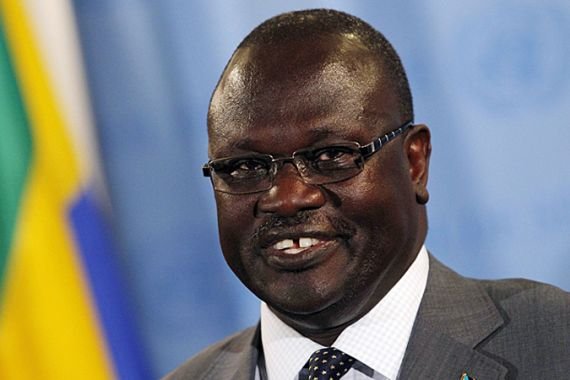sudan/" target="_blank" rel="noopener noreferrer">South Sudan’s First Vice-President, Riek Machar, has been charged with murder, treason, and crimes against humanity. The indictment has shaken the fragile peace in the world’s youngest nation.
Justice Minister Joseph Geng Akech linked the charges to a March attack by the White Army militia, which left 250 soldiers and a general dead. He added that a UN helicopter was also hit, killing its pilot.
“This case sends a clear message: those who commit atrocities against the people of South Sudan, against our armed forces, and against humanitarian personnel will be held accountable, no matter their position or political influence,” the minister said.
A Fragile Peace Under Threat
Machar’s spokesperson Puok Both Baluang dismissed the charges as “a political witch-hunt.” He accused President Salva Kiir’s allies of fabricating the case, saying it was “designed to dismantle the peace agreement.”
He also condemned South Sudan’s judiciary, calling it “politically directed courts.”
The accusations have heightened fears that civil war could return. Forces loyal to Machar fought a brutal five-year conflict against Kiir’s supporters until the 2018 peace deal, which ended fighting that killed nearly 400,000 people.
Machar has been under house arrest since March. Tanks and soldiers now surround his residence in Juba, cutting him off from supporters.
Widening Rift in Government
Seven other senior officials were also charged, including Petroleum Minister Puot Kang Chol and Army Deputy Chief of Staff Lt Gen Gabriel Duop Lam. They were detained alongside Machar and have remained in custody since. Another 13 suspects are still on the run, the minister said.
Both Machar and Chol have been suspended from their government positions, according to an announcement on state television.
The March attack, carried out in Nasir, was blamed on the White Army militia, drawn mainly from Machar’s Nuer ethnic group. The militia has long clashed with Kiir’s Dinka community, deepening ethnic divisions that fuel instability.
Uncertain Road Ahead
International bodies including the UN, African Union, and neighbouring countries have urged calm. But tensions between Kiir and Machar have steadily worsened, even after years of uneasy power-sharing.
South Sudan gained independence from Sudan in 2011 after decades of war. Yet only two years later, another civil war broke out — and the present crisis raises fears of history repeating itself.
The big question now is whether this trial will deliver justice, or whether it will drag South Sudan back into bloodshed. Do you think this case can be judged fairly in Juba’s courts?
For background on South Sudan’s fragile transition, see Reuters analysis.
Rate, Like 👍, Comment💬, share this article, Follow us on our social media handles, and Submit your own story to get featured and earn rewards!







